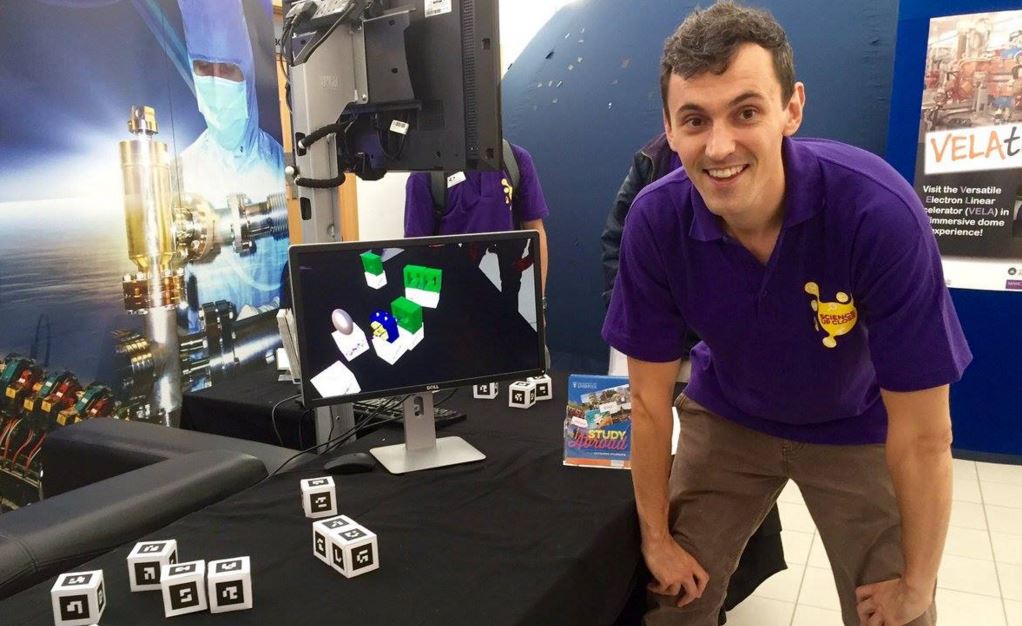Small particles, big machines

Physics Department takes its outreach team to the FCC Week
“Small particles, big machines” was the theme of the public hands-on exhibition that run in parallel to the annual meeting of the Future Circular Collider (FCC) Study in Berlin from 30 May to 5 June 2017.
The event was organised by DESY in the Urania centre, a mere kilometre away from the conference venue, with the objective of bringing closer to the public the science and technology of particle physics and particle accelerators.
The University of Liverpool’s Physics Department, as communications coordinator of EuroCirCol, took a prominent part in the exhibition, demonstrating a “salad bowl accelerator” powered by a Van de Graaff generator, and a virtual particle accelerator based on an augmented reality app called acceleratAR.
The virtual accelerator, launched especially on occasion of the FCC Week, consists on a series of paper cubes, each one with a different pattern design. When looked through the camera of a smartphone or a tablet with the acceleratAR app the paper cubes turn into different elements of a particle accelerator (a particle source, an RF cavity, a dipole magnet, etc.). The app offers a visualization of the effect of different electric and magnetic fields on a charged particle beam, just like in a real accelerator.
The app has been created by Dr Chris Edmonds, an accelerator scientist from the Physics Department’s Quasar group, and it can be downloaded for free together with the templates to build the cubes from the website www.acceleratar.uk
The exhibition also included CERN’s interactive tunnel, where visitors could experience the concept of a Higgs field and play football with protons, creating virtual hadron-hadron collisions that were displayed on a big screen. A model of the ATLAS detector, a mechanically operated “ball accelerator” and numerous posters gave the visitors a unique insight into the workings of real particle accelerators.
The FCC is an international collaboration of 111 institutes from 32 countries led by CERN, aimed at designing the particle accelerator that will replace the LCH once it has completed its operational lifetime.
The future collider will probably enter service in the mid 2040’s, so most of the scientists who will operate it are now in primary school. This exhibition may just have given them a head start.